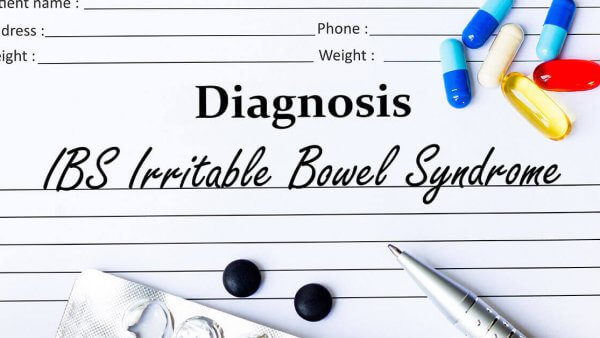Irritable bowel syndrome (IBS) is a chronic and debilitating functional disorder that impacts many individuals and yet is poorly understood. There is no single known cause, although stress and diet can exacerbate symptoms.
Many practitioners use trial and error approaches to their patients’ symptoms with no guarantee of success. Proton pump inhibitors, anti-diarrheals don’t seem to be of much resolve long term.
What to do after a IBS diagnosis?
Changing Your Diet
First and foremost, we have to change the Standard American Sugar/Grain/Milk based diet. IBS can be thought of as the voice of the bowel. When it is screaming at us because we won’t listen it remains irritable. Daunting bouts of constipation followed by ferocious diarrhea leave one hopeless and often times staying home from social events because of the fear of an “Episode”.
Understand How Your Gut Functions
Understanding gut anatomy can be helpful in understanding that IBS may be just a strong voice to tell us to stop unhealthy behavior. The small bowel which is usually where irritability ensues has its own nervous system called the “Myenteric Plexus”. When food hits the bowel the myenteric plexus signals the surrounding organs to secrete digestive juices. If the gut is reacting to allergens (gluten, grains, eggs, etc.) or it is over full, the myenteric plexus is left with a voice of irritability instead of function.
Often times the gut, in its state of reaction, produces little to no digestive juices. We however, do not stop eating or even try to stay away from what the triggers might be. We continue to challenge the gut as if it is somehow finally going to hear a different language. If we do not listen to this voice, eventually the ecology of the gut (the probioitic: live bacteria) gets disrupted leaving what could be viewed as a exposed mucosal lining. The gut bacteria serve as a digestive/protective barrier before the broken down molecules of digestion reach the intestinal cells and are readied for absorption.
Alleviate IBS Triggers
When we alleviate common triggers: gluten, grains, sugars, breads, eggs, peanuts and milk (a few of the biggest gut disruptors and allergens) for the long haul, the lining of the intestinal tract from the oris (mouth) to the anus (rectum) has the opportunity to heal.
Over exposure to the wrong foods for years can cause serious damage and leave the bowel irritable. Once the GI lining is disrupted it lends for micronutrient deficiencies that may go unresolved for years. These deficiencies then set the system up for a whole host of other problems. In the face of IBS it may be of benefit to undergo cellular micronutrient deficiency testing.
The Link Between IBS and Vitamin D
Researchers and functional medical practitioners have found a significant association between vitamin D levels and the severity of IBS symptoms. It is interesting to note that patients with IBS often times have insufficient vitamin D levels. In addition, there was an association between vitamin D status and the patients’ perceived quality of life.
Low vitamin D can worsen depression or what is known as seasonal affective disorder. Many doctors already assess their patients’ vitamin D levels and address it accordingly. When the sun goes behind the clouds in the winter time, we have less exposure to what aids the formation of vitamin D. This could be part of why so many Americans are chronically deficient. As well as the other causes from wearing sun screen and staying covered up to avoid skin cancer.
It is important to guide individuals on their intake of vitamin D once they are found to be deficient. In general, most individuals are going to need anywhere between 5000 IU to 10,000 IU daily for several months (3-6) to address a deficiency, and they may need 5000 IU for a maintenance dose. Patients are unique individuals and deserve attention to their condition and laboratory levels.
The role of vitamin D supplementation in other GI conditions has been demonstrated in numerous studies showing the association between a vitamin D deficiency and disease severity in inflammatory bowel disease. Medical literature refers to a term called Intestinal Permeability. Individuals with intestinal permeability to include both inflammatory bowel and IBS are affected by the level of Vitamin D. Low vitamin D also plays a critical role in the proper absorption of calcium and maintenance of bone health.
You might also like: Vitamin D Deficiency
How to Treat IBS
It is important to remember that IBS affects each patient differently with triggers varying from individual to individual, making the disease very difficult to treat. Therefore, it is important to consider food sensitivity testing, and to rule out other issues such as SIBO (small intestinal bacterial overgrowth).
Many patients experience diarrhea or constipation as a result of their symptoms, or their bowel habits can alternate between the two. In some individuals this can be an improper ecology in the gut. Years of antibiotic treatment, excessive toxic foods (caffeine, soda’s, artificial sweeteners etc.) can alter the ecology of the gut leaving the syndrome SBIO.
In addition to vitamin D, Saccharomyces boulardii may also be of great benefit for IBS patients. This nonpathogenic yeast has been tested for clinical efficacy in several types of acute gastrointestinal conditions, including IBS, antibiotic-associated diarrhea, Clostridium difficile infection, acute diarrhea, enteral nutrition-related diarrhea, traveler’s diarrhea, Ulcerative Colitis, Crohn’s disease, and Helicobacter pylori infections.
Probiotic health in the gut boosts gut health as they aid digestion, help us to produce essential vitamins, absorb minerals more efficiently, help to keep our waistlines trim. A good ecology in the bowel is very essential in promoting good gut health.



